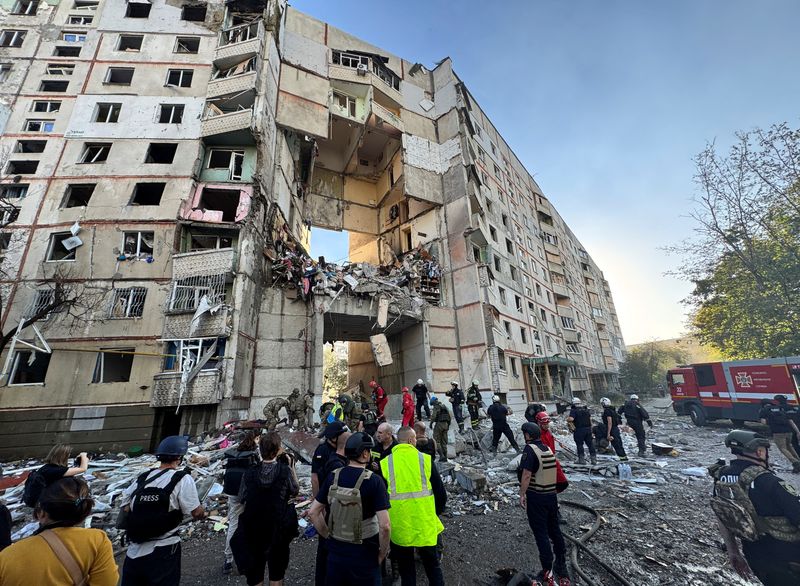By Sabine Siebold
BERLIN (Reuters) - NATO plans to coordinate the transport of a large number of wounded troops away from front lines in case of a war with Russia, potentially via hospital trains as air evacuations may not be feasible, according to a senior general.
The future scenario for medical evacuations will differ from allies' experience in Afghanistan and Iraq, Lieutenant-General Alexander Sollfrank, the head of NATO's logistics command, told Reuters in an interview.
In a conflict with Russia, Western militaries would likely be faced with a much larger war zone, a higher number of injured troops and at least a temporary lack of air superiority close to the front lines, the German general said.
"The challenge will be to swiftly ensure high-quality care for, in the worst case, a great number of wounded," he said without specifying how many injured troops NATO would expect.
The planning for medical evacuations is part of a much broader drive by NATO, prompted by Russia's 2022 invasion of Ukraine, to overhaul and boost its ability to deter and defend against any Russian assault.
The German military has said it expects Russia to be able to attack a NATO country as soon as 2029, while Russian President Vladimir Putin casts the West as the aggressor for arming Ukraine. The Ukraine war has caused the sharpest confrontation between Russia and the West since the 1962 Cuban Missile Crisis.
Sollfrank runs NATO's Joint Support and Enabling Command (JSEC), tasked with coordinating the swift movement of troops and tanks across Europe as well as logistical preparations such as the storage of munitions on NATO's eastern flank.
Recently, JSEC - which is based in the southern German town of Ulm - staged an exercise in coordination of patient flows.
Should a conflict with Russia arise, wounded troops will not only need to be transported over a larger distance than in other wars of recent years, Sollfrank said.
Russian air defences and jets would threaten medical evacuation flights in a way that insurgents in Afghanistan or Iraq could not, likely creating a need for hospital trains that can transport more casualties at the same time than aircraft.
"Air superiority will have to be achieved in the first place. It will require time to succeed over the entire length and depth of the front line," Sollfrank said.
"For planning reasons, all options to take a great number of wounded to medical installations need to be considered, which includes trains but potentially also buses."

Differing medical regulations between countries are another hurdle to overcome, Sollfrank said. A "military medical Schengen", akin to the political Schengen zone that allows free movement within most of the European Union, could be a solution.
It could entail an area of free passage for sensitive medications such as narcotics or strong painkillers, which would be needed to treat wounded troops but whose cross-border transport is regulated.